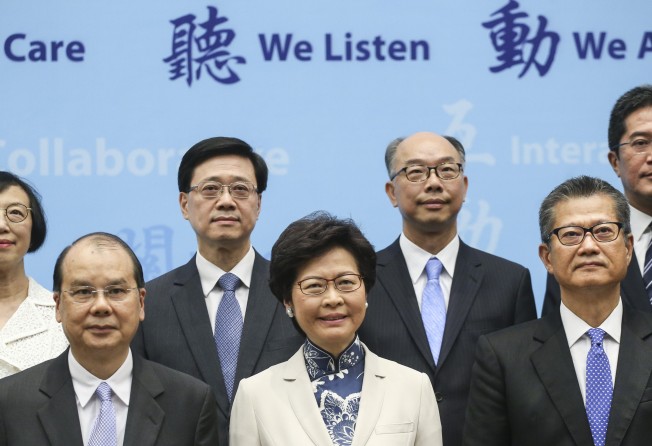The true ‘mountains’ that Carrie Lam has to climb
The problems previously highlighted by Hong Kong’s leader-in-waiting are mere molehills; now that she is taking office, she should make use of the city’s vast reserves to tackle a host of pressing livelihood issues

Last summer, Carrie Lam Cheng Yuet-ngor had people scratching their heads when she said there were three “mountains” – or contentious issues – that the government must resolve.
Now that she is taking over as Hong Kong’s leader this weekend, she may have to admit to a much longer list of real “mountains”, that is, intractable problems the city faces, rather than just a few secondary ones. One of these big “mountains” that the new government can resolve unilaterally – now that John “Mr Stingy” Tsang Chun-wah is out of the picture – is the absurd pile of cash and assets it is sitting on.
Lam, then the chief secretary, counted her three “mountains” as The Link’s controversial management of public estate malls; the MTR’s system to adjust fares; and the Mandatory Provident Fund scheme’s offset mechanism.
It was, in truth, a poorly executed campaign aimed at the grass roots: more affordable shops on public estates, cheaper subway fares, and better compensation for workers who are being sacked or made redundant. But, these are molehills compared to the “mountains” Lam now faces. Even so, the Leung Chun-ying administration has not successfully dealt with these lesser problems.
It did make a last-minute attempt to impose a solution to overhaul the MPF offsets, which only managed to upset leaders from both labour and business. The new government looks set to have to renegotiate all over again.
Everyone will have their own favourite list of problems for Hong Kong. But one thing they all share – whether it’s land supply, MPF or political reform – is that they all involve the entrenched interests of powerful constituencies.
The government’s reserves, however, is something the administration can tackle on its own. As estimated by City University visiting economist Tsang Kwok-ping, the Exchange Fund’s total assets have reached HK$3.8 trillion, but it only needs half of that to defend the HK-US dollar peg. The “free reserves” translate to HK$260,000 per Hong Kong resident. He didn’t count land sales revenue exclusively reserved for infrastructure projects, which have a tendency to turn out white elephants.
Well, Mrs Lam, stop hoarding, start spending. Let’s have an anti-poverty drive, universal childcare and early childhood education, health and unemployment insurance, old age and retirement pensions, tax breaks for renters and small businesses, more money for research and development, more public gardens and amenities. Try welfarism for the people, rather than for the rich and powerful.